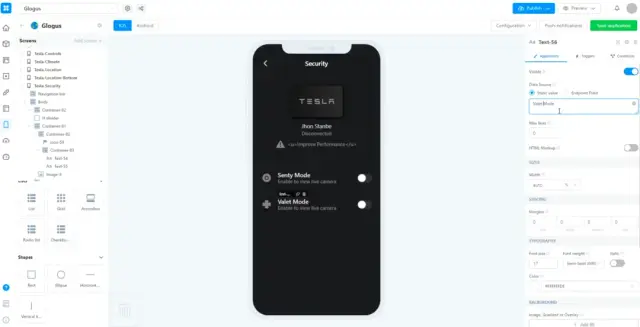No-Code Development for Non-Technical Founders
Discover how no-code development platforms empower non-technical founders to build, launch, and scale their applications without worrying about coding or technical expertise. Learn the advantages and top platforms.

What is No-Code Development?
No-code development is an innovative approach to software application building that allows non-technical users, such as entrepreneurs and founders without coding expertise, to create functional applications without writing a single line of code. Instead of traditional programming languages and techniques, no-code development uses visual, drag-and-drop interfaces and pre-built templates, components, and workflows to design and develop software applications. This powerful method enables rapid prototyping and implementation, empowering non-technical founders to develop their ideas into tangible products in a fraction of the time it would take with conventional coding.
No-code development platforms abstract complex technical aspects while maintaining the ability to create customized applications. From building mobile and web apps to creating backend systems and integrating with existing services, no-code development democratizes the world of software development by making it accessible to a wider audience and unleashing the full potential of creativity and innovation.
Why Non-Technical Founders Should Embrace No-Code Development
Non-technical founders can tremendously benefit from embracing no-code development platforms, as they provide several significant advantages:
- Lower barriers to entry: No longer limited by programming skills or the need to hire developers, non-technical founders can bring their ideas to life faster because no-code platforms simplify the development process with their user-friendly visual interfaces, templates, and pre-built components.
- Time-to-market: Swift prototyping and iteration are possible with no-code platforms, enabling non-technical founders to conceptualize, build, and test applications in a fraction of the time compared to traditional development methods. This rapid development cycle significantly reduces the time-to-market for new products and features, providing a competitive advantage.
- Reduced costs: Hiring developers or outsourcing software development can be costly, especially for startups and small companies. No-code platforms help non-technical founders substantially cut costs by allowing them to develop applications independently or with smaller teams, leaving more resources to invest in other critical business aspects.
- Scalability and reduced technical debt: No-code development platforms often auto-update and release new features, which helps maintain applications and ensures they remain scalable over time. Using no-code platforms minimizes technical debt as they handle maintenance and updates, allowing non-technical founders to focus on their core business competencies.
- Flexibility and adaptability: No-code development platforms provide an unprecedented level of flexibility, allowing non-technical founders to adapt and pivot their applications as their business grows and market conditions change. This adaptability is essential for startups navigating the ever-changing technology industry.
Top No-Code Development Platforms for Non-Technical Founders
The following no-code development platforms offer powerful tools and features tailored to non-technical founders, enabling them to build, launch, and scale their applications efficiently:
AppMaster.io
A highly versatile and powerful no-code platform, AppMaster.io allows users to visually create data models, business logic, and REST API endpoints for backend applications. It also offers drag-and-drop interfaces for designing web and mobile app interfaces. AppMaster.io generates real applications, which means users can get the executable binary files or even the source code, depending on their subscription level, allowing for on-premises hosting if required.

Bubble
Bubble is a popular no-code platform for building web applications, offering an easy-to-use visual builder for designing and prototyping applications. It also includes a built-in database and enables users to create custom workflows and logic, as well as connect to existing APIs and services.
Wix
Known for its website building capabilities, Wix is another great option for non-technical founders seeking a comprehensive no-code platform. Wix allows users to design visually appealing websites using drag-and-drop tools and offers integration with a wide range of apps and services to extend their website's functionality.
Webflow
Webflow combines the ease of use offered by no-code development platforms with the power and flexibility of traditional coding practices. Non-technical founders can use Webflow's visual interface to design engaging websites, while also utilizing custom code if desired, making it a popular choice among designers and developers alike.
OutSystems
OutSystems is a modern, low-code platform that enables non-technical founders to create enterprise-grade applications quickly. It offers visual development tools, pre-built templates, and a wide range of integration options to create applications that can scale and adapt as the business grows.
When choosing a no-code platform, non-technical founders should carefully consider their application's unique requirements, the desired level of customization, and any necessary integrations with existing services. By selecting the right platform, founders can confidently build and scale their applications, leveraging the numerous advantages offered by no-code development.
Pros and Cons of No-Code Development
Before diving into the world of no-code development, it's essential to weigh the pros and cons to determine whether it's the right choice for your business. Here's a look at the advantages and challenges associated with no-code development platforms.
Pros of No-Code Development
- Rapid Implementation: No-code development platforms enable fast prototyping and deployment of software applications, significantly reducing time-to-market. This allows non-technical founders to quickly validate their ideas and iterate based on feedback.
- Reduced Costs: With no need for a developer team or technical expertise, non-technical founders can build their applications on a smaller budget, allowing for leaner operations and more affordable product launches.
- Ease of Use: No-code platforms offer user-friendly interfaces that don't require any coding skills, making the process of building applications more approachable for non-technical founders and team members.
- Streamlined Updates and Maintenance: Many no-code development platforms take care of updates, bug fixes, and new feature releases automatically, reducing the potential for technical debt and the need for extensive maintenance efforts.
- Empowering Innovation: By removing technical barriers, no-code development platforms democratize software creation, enabling a broader range of individuals and teams to contribute to the innovation and growth of a business.
Cons of No-Code Development
- Limited Customization and Flexibility: While no-code platforms offer many pre-built templates and components, they might not meet every unique requirement of a custom-built application. In such cases, you might need to opt for additional custom code or third-party integrations.
- Scalability Concerns: Not all no-code platforms are designed to handle high levels of scale and complex applications. Before committing to a platform, non-technical founders should ensure that it can accommodate their business's growth and potential future needs.
- Dependency on Platform Providers: Building your application on a no-code platform means relying on the platform provider for maintenance, updates, and support. Any changes or discontinuation of the platform may impact your application's functionality and longevity.
- Data Security and Compliance: Non-technical founders must carefully investigate the data security and compliance measures implemented by their chosen no-code development platform, ensuring that their applications and data will adhere to necessary industry regulations.
Achieving Success with No-Code Development: Tips and Strategies
Embracing no-code development as a non-technical founder can be a game-changer, but it's essential to adopt the right strategies to ensure the success of your applications. Here are some tips to help you make the most of your no-code journey.
- Understand Your Platform: Thoroughly learn about the capabilities and limitations of your chosen no-code platform, including the range of pre-built components, third-party integrations, and features it offers. This knowledge will help you plan and execute your application development effectively.
- Focus on User Experience: Great software relies on excellent user experience (UX). Spend time designing the layout, navigation, and interactions of your application to ensure it meets the needs of your users and is straightforward and enjoyable to use.
- Embrace Feedback and Iteration: Make the most of rapid prototyping capabilities by seeking user feedback and continuously iterating on your application. This will help you refine your product based on real-world usage, improving its quality and addressing user pain points.
- Leverage Third-Party Integrations: Many no-code platforms offer integrations with popular third-party services and tools, enabling you to expand your application's functionalities as needed. Investigate these integration options and use them to enhance your application's capabilities when required.
- Consider Custom Code When Necessary: While no-code development platforms offer many benefits, occasionally, you might encounter limitations. In these cases, don't hesitate to enlist the help of a developer to build custom code or extensions, ensuring the best fit between your application and its intended purpose.

The Future of No-Code Development
The no-code development industry is constantly evolving and improving, with new technologies and advancements making it even more accessible and powerful. As more companies adopt no-code platforms, the future of software development for non-technical founders looks promising. Collaboration between no-code platforms, developer tools, and other software services is expected to increase, enabling seamless interoperability and more advanced solutions.
Additionally, artificial intelligence and machine learning applications are beginning to offer no-code solutions, allowing for intelligent applications without requiring coding expertise. As an example, AppMaster.io is a powerful and comprehensive no-code development platform that has gained positive recognition in various categories, such as No-code Development Platforms, Rapid Application Development (RAD), and API Management. With continuous advancements, platforms like AppMaster.io are poised to revolutionize the way non-technical founders and businesses approach software development.
No-code development isn't just a trend; it's becoming an essential aspect of modern software development and business growth. Non-technical founders can now turn their ideas into reality without worrying about coding or technical expertise, and as no-code platforms continue to mature, the possibilities for innovative and practical solutions will only grow.
FAQ
No-code development is an approach to building software applications without the need for writing code by using visual tools and pre-built templates, empowering non-technical users to create applications swiftly.
Non-technical founders can benefit from no-code development platforms, as they enable rapid prototyping and implementation of applications without needing coding skills, helping them save time and money.
Some popular no-code development platforms include AppMaster.io, Bubble, Wix, Webflow, and OutSystems.
Non-technical founders can succeed by thoroughly understanding their platform's capabilities, focusing on user experience, embracing feedback and iteration, and leveraging third-party integrations or custom code when needed.
By using no-code platforms, non-technical founders can avoid accruing technical debt, as most platforms automatically handle updates and feature releases, ensuring applications remain maintainable and scalable over time.
Yes, many no-code development platforms support scalability and offer features that can accommodate growing businesses. However, the degree of scalability may vary depending on the platform and application complexity.
Many no-code development platforms offer REST API and webhook integration features, enabling non-technical founders to connect their applications with existing systems and services, thus ensuring seamless interoperability.





